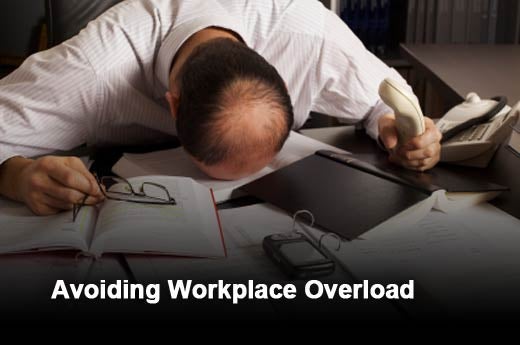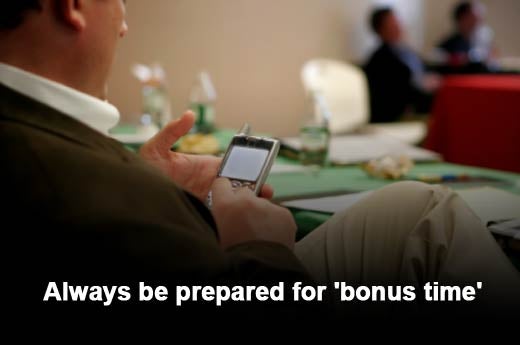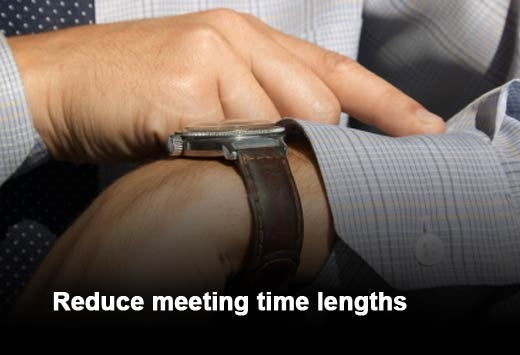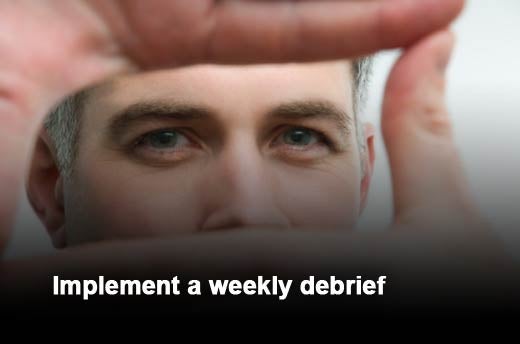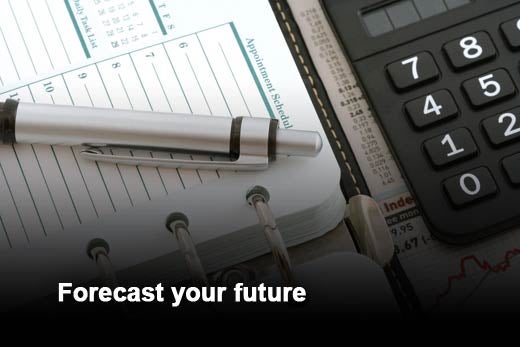
Jason Womack is a workplace performance expert, executive coach and author of the book, “Your Best Just Got Better: Work Smarter, Think Bigger, Make More.” He has a lot of tips for overcoming overload and doing a better job of time management, and Don Tennant picked nine that he thought might be particularly useful to highlight here.
Click through for nine tips to help you overcome overload and better management your time, as identified by Jason Womack, workplace performance expert, executive coach and author of the book "Your Best Just Got Better: Work Smarter, Think Bigger, Make More."
Do some small things to get rolling on getting caught up at the beginning of the year. Then pace yourself. You’ll probably find it’s much easier to keep rolling along at a comfortable clip.
Bring small chunks of work with you wherever you go. Then, while waiting for a meeting to start or for a delayed flight to depart, you’ll be able to reply to an email or make a phone call. In other instances, you might have enough time to review materials for another meeting or project you're working on. If you’re prepared, you can also confirm appointments, draft responses or map out a project outline.
If meetings at your organization are normally given a 60-minute time length, start giving them a 45-minute time length. You’ll find that what you get done in 60 minutes you can also achieve in 45 minutes. You’ll also gain 15 extra minutes for each meeting you have. Usually, we fill the time we expect to fill. Give yourself less time and you’ll get it done in less time. The shorter time frame really gets you focused. All that extra time will really add up and provide you with more time to work toward your goals.
It can be extremely helpful to discern exactly what it is that gets in the way of your focus. Identify what is blocking your ability to give all of your attention to what needs your attention. Is it the constant ding of emails popping up in your inbox? Is it employees or colleagues who need “just a minute” of your time? Once you have this inventory, you can begin to make subtle changes so that you wind up getting more done, in less time, at a higher level of quality.
Take one step at a time and don’t worry about reaching the ultimate goal. Make use of small chunks of time. In fact, a great way to approach this is to break the yearly goals down into quarterly goals. Set milestones, decide actions and make progress faster.
Come to terms with the fact that you can’t get it all done yourself. Identify exactly what needs to be done and by when. Over-communicate and (if you need to) track what you have given to whom.
Delete and recycle to make room for the “new” of the new year. Get rid of everything you can and reduce what might be coming in. Unsubscribe from email newsletters. [Note from Don: Not your ITBE email newsletter, of course.]
Take time after every five-day period to stop, look around, and assess where you are in relation to where you thought you would be. Look at three key areas: 1. What new ideas have emerged? 2. What decisions need to be made? 3. How do I track this information?
Open your calendar to 180 days from today. There, write three to four paragraphs describing what you’ll have done, where you’ll have been and what will have happened by then. This kind of forecasting is good to do from time to time, and by spending 10 or so minutes at the beginning of the year thinking about the next six months, you’ll put your goals into action.


